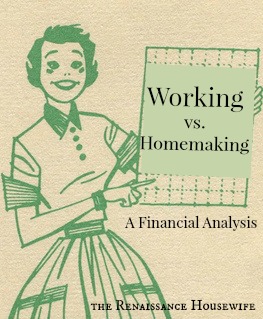
As Springtime rolls around, I'm looking at all of these seedlings that I started and I'm wondering... what am I really going to do with 50 pepper plants? You could sell them at the farmer's market! You could cook them all into pepper jelly, mark the price way up and make hundreds of dollars!!!
Fantasy Business Alert! Just because something SOUNDS like a good idea doesn't mean it is. Just because other people are doing it doesn't mean it's a good idea. Just because you "invest" lot of money up front doesn't guarantee a return. And just because an idea has the potential to make money doesn't mean it will.
In the past I would get an idea and really convince myself that it would work. I would buy business cards and a domain name, make a website and even go so far as to make some products. But then I would never follow through, because I came up with another idea without being diligent with the first one.
And then of course there were the times when my "businesses" operated at a loss. Like the time I was cleaning house at $6 per hour and it took most of my profits to pay for gas to get there. Or when I bought a bunch of video-making equipment because I was going to earn thousands making how-to DVDs. With this idea I actually followed through and sold... three DVDs.
Have you started any fantasy businesses? It seems like everyone wants to be an entrepreneur, and with good reason. Home-based businesses are an excellent opportunity for housewives like you and me to make some extra cash on the side, in our free time. Unfortunately, however, many of these new home-based businesses are operating at a loss. Check out the following example:
Wanda's Business
Wanda loves to arm knit. It's fast, easy and fun. She decides to start a business selling arm-knit scarves.
Supplies: $2 per scarf x 25 scarves = $50
Craft show booth: $40
Driving to the craft show: $6
Time spent: 10 hours knitting + 6 hours at the show = 16 hrs. x $10 per hour = $160
Just to break even without a profit, Wanda would have to sell each scarf at $10.24. Wanda doesn't think people will pay $10 for a scarf, so she prices her product at $5. If she figures her time is worth $0 because she enjoys doing it, Wanda may make a small profit of $1.15 per scarf. If all the scarves sold, she might be able to buy pizza for the family!
There are two major problems with this fantasy business.
1. There is a tiny profit margin.
2. The market is flooded, so making sales will be difficult. Things that have flooded the market: soaps, cupcakes, baby products, American Girl doll clothes, scarves, soy candles. Everyone makes these things because they are easy, cheap and enjoyable to make. It's not the soap-makers, cupcake bakers, seamstresses or knitters that get rich off these products- it's Wilton, Hobby Lobby, and Etsy.
A Hobby, Not a Business
How can you call something a BUSINESS when you can't sell anything and it doesn't make any money? I think Wanda, in this case, really likes making scarfs, but she knows it would be silly to make dozens of scarves for fun. So she attempts to make some money at it, or at least call it a business to justify her fun.
Is there anything wrong with a hobby? No! But I know from experience that fantasy businesses can be financially destructive (and habit-forming, if I do say so myself.) At least hobbies don't require farmer's market booths, business cards, conference registration, or domain names.
A Real Business
What is a real business? It's some kind of activity that makes money... even if you don't have business cards. Business cards are not what make a "real" business. So how does a housewife go about starting a real business? It doesn't look like a "real" business, but it does make money.
1. Use your time to make some money with your own hands. Teach music lessons, clean up someone's yard, babysit, whatever. Do this at home or close to home, so there are no hidden costs like gasoline.
2. Use the money you made to invest in some kind of product or service that you can sell. Seeds to grow flowers, new pruning shears so you can prune other people's trees, etc.
3. Never "invest" more money than you have made in step #1. As a rule, don't invest more than half of your profits*. This rule will keep you from running your "business" at a loss. And DON'T subsidize or "help" your business with your husband's salary or other household money. That's not making money, that's getting a loan.
You will know right away if your business is a profitable idea when you stop subsidizing and keep track of how much everything costs, and subtract that from your actual profits. Don't say, "Well, it's only been a week/month/year since I started.... NEXT year I'll make some profits." Demand a profit right from the start.
What if it IS a Fantasy Business?
So you've discovered that making and selling arm-knit scarves isn't profitable. After receiving this sad news, you box up your knitting supplies and resign yourself to only making one scarf every year. Not so fast! You can still keep on making scarves and lots of them... AND still be ahead financially.
Many people have a set amount of money each year that is used on gifts. They spend $5 on birthdays, $20 on Mother's Day, $30 on Christmas gifts, etc. If you have this budgeted anyway, why not replace some of these gifts with your homemade scarves? Looking at it this way, your scarf-making habit would be SAVING money, which is even better than earning it!
$10 birthday budget - $2 per scarf for supplies = $8 "profit"!
$8 profit x 25 scarves = total savings of $200!!!
Gifts are a good way to bridge the gap between "hobby" and "business". Gift-giving can also jump-start marketing for a real business. "You know Sally, who makes those amazing bacon cookies?" If people rave about your gifts, then you know it's a good product. If nobody says anything... well, at least you didn't invest hundreds of dollars.
***
Have you started any fantasy businesses?
Have you started any profitable home-based businesses?
I look forward to sharing my experience with side-hustles, micro-businesses, and making money as a housewife.
*I know that many successful business owners use leverage to start profitable businesses. But those people are usually not frugal housewives.






 RSS Feed
RSS Feed





